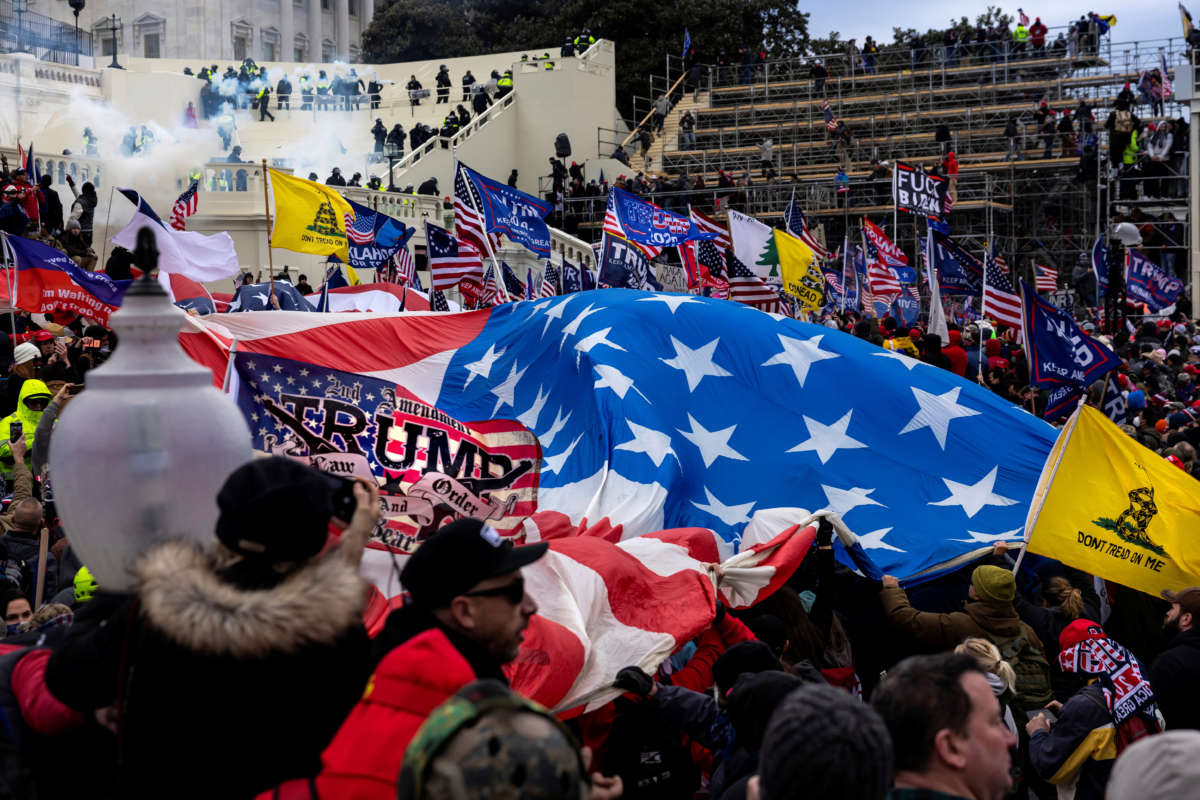Did you know that Truthout is a nonprofit and independently funded by readers like you? If you value what we do, please support our work with a donation.
The chair of the select committee chosen to investigate the January 6 breach of the United States Capitol building by a mob of loyalists to former President Donald Trump said that the former chief executive and his allies in Congress would likely become subjects of the inquiry.
Rep. Bennie Thompson (D-Mississippi), the chair of the House select committee that was formed in late June, spoke to The Guardian about the investigation he was tasked to lead. When he was asked by the publication whether he would look into Trump or his legislative supporters, Thompson responded by saying “absolutely,” adding that “nothing is off limits” in terms of who will be investigated as part of the committee’s work.
Doing so was important, Thompson said, to ensure that democracy in the U.S. and the concept of a peaceful transfer of power don’t erode in the future.
“The issues of January 6 are one of the most salient challenges we have as a nation, to make sure that this democracy does not fall prey to people who don’t really identify with democracy,” Thompson said.
The Mississippi Democrat also suggested that the committee would make anyone who spoke to the former president that day a subject of the inquiry — including House Minority Leader Kevin McCarthy (R-California), who spoke to Trump by phone during the attack on the Capitol.
Trump refused to call off his loyalists for several hours when McCarthy requested him to do so on that day, multiple Republican sources have said.
“Well, Kevin, I guess these people are more upset about the election than you are,” Trump is purported to have said.
It would be important for the committee to know exactly what Trump said that day, and to whom, Thompson told The Guardian.
“If somebody spoke to the president on January 6, I think it would be important for our committee to know what was said. I can’t imagine you talk about anything else to the president on January 6,” Thompson explained.
If subjects didn’t want to take part in testifying willingingly, Thompson added, the committee would issue subpoenas to them, and would “pursue it in court” if they refuse to comply.
Although likely to become a subject of the commission’s work himself, McCarthy has selected five Republicans to become a part of the investigative commission, as he is allowed to do per the rules of the commission’s formation. Three of those five members, however, are individuals who voted against the certification of the 2020 presidential election on the very day that the breach of the Capitol occurred, including Rep. Jim Jordan (R-Ohio), a staunch ally of Trump who has downplayed the events of January 6.
“This is about going after President [Donald] Trump. The Democrats don’t want to talk about anything else,” Jordan has said of the commission that he is now a part of.
A majority of voters in the U.S. disagree with Jordan’s assessment. According to an Economist/YouGov poll conducted earlier this summer, 52 percent of voters approve of the formation of a commission to investigate the events of January 6. Just 30 percent said they disapproved of doing so.
Speaking against the authoritarian crackdown
In the midst of a nationwide attack on civil liberties, Truthout urgently needs your help.
Journalism is a critical tool in the fight against Trump and his extremist agenda. The right wing knows this — that’s why they’ve taken over many legacy media publications.
But we won’t let truth be replaced by propaganda. As the Trump administration works to silence dissent, please support nonprofit independent journalism. Truthout is almost entirely funded by individual giving, so a one-time or monthly donation goes a long way. Click below to sustain our work.
